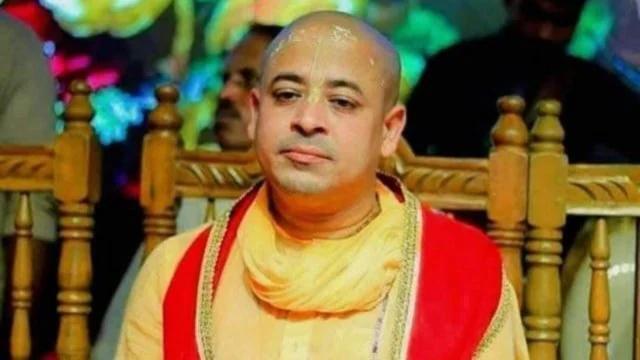
Bangladesh Government Files Appeal to Stay Monk Chinmoy Das’ Bail
In a recent development, the Bangladeshi government has filed an appeal to stay the Bangladesh High Court’s (HC) bail order for former ISKCON (International Society for Krishna Consciousness) monk Chinmoy Krishna Das. Das was granted bail after six months of his arrest on sedition charges for allegedly disrespecting the national flag during a rally in Chattogram. The controversy surrounding Das’ actions has sparked a heated debate in the country, with many calling for his arrest and prosecution.
For those who may not be familiar with the incident, Chinmoy Krishna Das, a former monk of ISKCON, was arrested in November 2022 for allegedly disrespecting the national flag of Bangladesh during a rally in Chattogram. Das, who is also a spiritual leader, had raised a saffron flag above Bangladesh’s national flag, sparking widespread outrage and condemnation from the government and the public.
Das was subsequently arrested and charged with sedition, a serious offense that carries severe penalties, including imprisonment. However, Das’ lawyers argued that the accusation was baseless and that Das had the right to freedom of expression and religious beliefs. After six months of imprisonment, the Bangladesh HC granted Das bail, citing the lack of concrete evidence against him.
However, the Bangladeshi government has now filed an appeal against the HC’s decision, seeking to stay Das’ bail and retain his custody. The government has argued that Das’ actions were a deliberate attempt to disrespect the national flag and the country’s sovereignty, and that he poses a threat to national security.
Das’ lawyers, on the other hand, have argued that the government’s appeal is an attempt to suppress freedom of expression and religious beliefs. They have also pointed out that the evidence against Das is circumstantial and that there is no concrete evidence to prove that he intended to disrespect the national flag.
The controversy surrounding Das’ actions has sparked a heated debate in Bangladesh, with many calling for his arrest and prosecution. Some have argued that Das’ actions were a deliberate attempt to provoke religious and national tensions, while others have argued that he was simply exercising his right to freedom of expression.
The case has also highlighted the complexities of freedom of expression and religious beliefs in Bangladesh. While the government has argued that Das’ actions were a threat to national security, many have argued that he was simply exercising his right to religious beliefs and expression.
In conclusion, the Bangladeshi government’s appeal to stay Das’ bail is a significant development in the case. While the government has argued that Das’ actions were a threat to national security, Das’ lawyers have argued that the evidence against him is circumstantial and that he poses no threat to national security.
As the case continues to unfold, it is clear that the controversy surrounding Das’ actions has sparked a heated debate in Bangladesh. The case highlights the complexities of freedom of expression and religious beliefs in the country, and raises important questions about the balance between national security and individual rights.
Source:



